March 19, 2024
Interview with TI-FRIS Fellow: Toward a Society Where Diverse People Can Live Their Own Lives (Assoc. Prof. Yuki Takahashi, Fukushima Univ.)
Prof. Yuki Takahashi, a TI-FRIS Fellow from Fukushima University, is researching the role of society in supporting the rehabilitation of criminals. Her goal is to envision social policies that allow diverse people to live their own lives, transcending the boundaries of academic fields based on her research in criminal law and policy.
We interviewed Prof. Takahashi about her activities, research, engagement in society, and future challenges.
——— Could you please introduce yourself?
My name is Yuki Takahashi from Fukushima University. I am researching the role of communities and society in supporting the rehabilitation of people who have committed crimes, from the perspective of criminal law and policy.
———What kind of activities are you involved in?
I am conducting research with an interest in how to create communities where criminals can easily rehabilitate, and how to support the recovery of people with addictions and the community life of people with mental disorders. In February of this year, by receiving financial support from TI-FRIS, I invited Mr. Ikuyoshi Mukaiyachi, the director of the social welfare corporation "Urakawa Bethel's House," which I have been interested in since my graduate school days, to hold a public seminar. At "Urakawa Bethel's House," people with mental disorders are engaged in business while living in the community. At the seminar, I wanted many people to know about the very act of disabled people doing business in the community, so I distributed kelp that they sell as materials to the attendees.
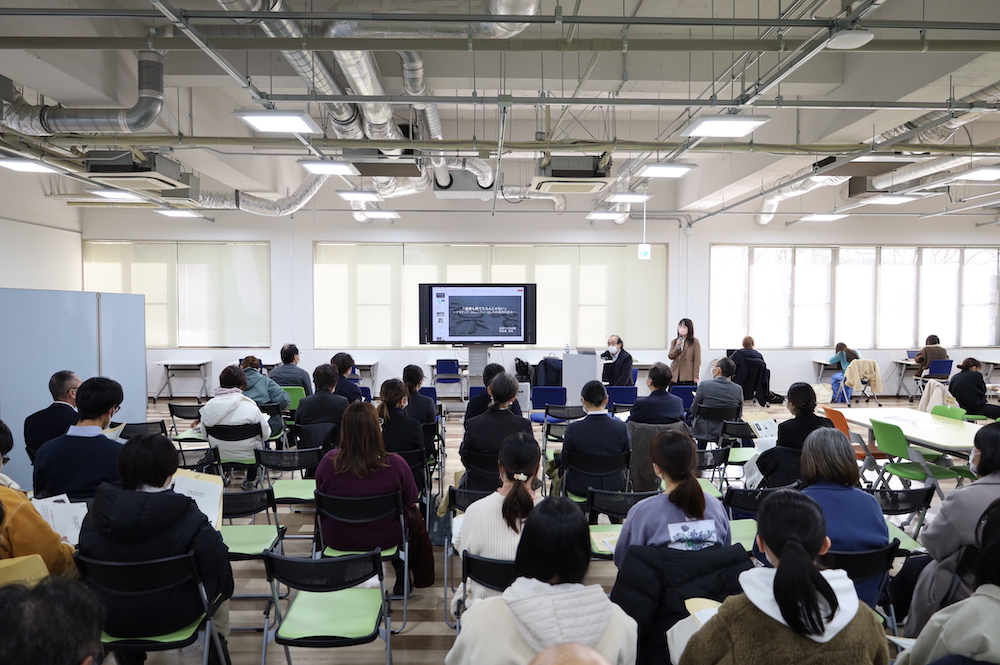
About 50 people attended the public seminar with Mr. Mukaiyachi, the director of "Urakawa Bethel's House," held in February 2023.
———It seems that engaging in society is particularly important in your activities.
I receive many requests, such as interviews for comments on judgments and incidents, participation in committees for community recidivism prevention plans, and support for crime victims. These are important activities to prevent misunderstandings about the problems of criminals and crime victims from society, and I believe it is my social responsibility to get involved using the knowledge I have gained as a researcher. Therefore, I try not to refuse requests as much as possible.
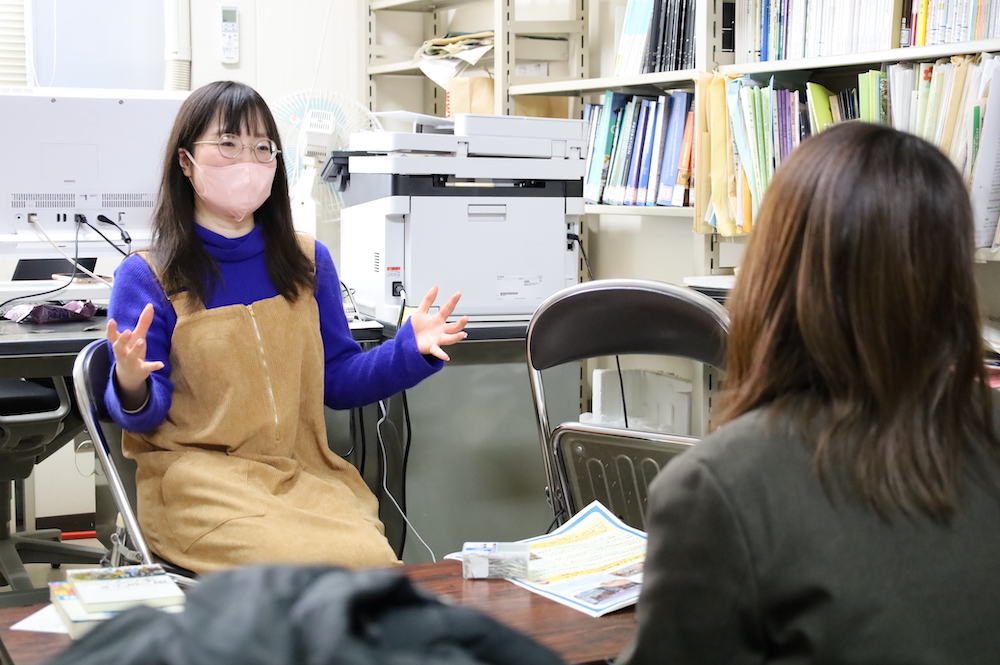
On this day, she was interviewed by a local newspaper about the judgment of a trial concerning the Tokyo Electric Power Company's Fukushima Daiichi nuclear power plant accident.
———How was your participation in the TI-FRIS/FRIS Symposium?
It was very stimulating and enjoyable. I am a graduate of Hitotsubashi University, which is a "liberal arts" university, so I had few opportunities to think deeply about "science" issues, but my perspective broadened through research presentations and discussions at the symposium. Also, in the academic society of law, my specialty, it is common to read all the manuscripts, so it was fresh and a good experience to make a poster and present it at TI-FRIS events.
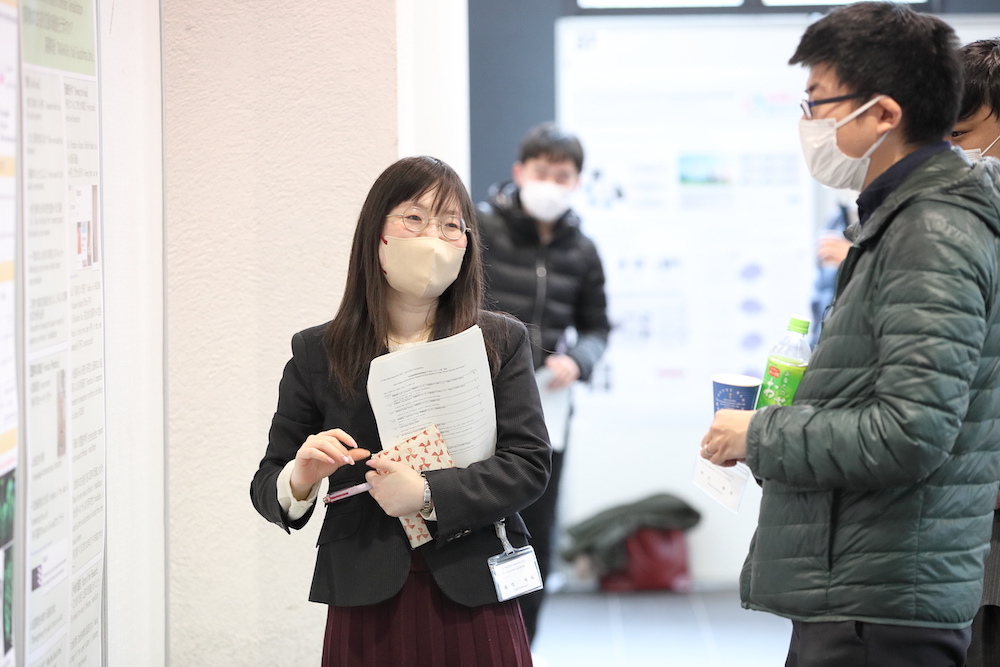
A scene from the poster session at the TI-FRIS/FRIS Symposium.
———Through your interactions with other researchers of TI-FRIS, have you had any new insights?
As a TI-FRIS Fellow, I realized for the first time that by interacting with researchers from different fields, I can look at my research from an overview perspective. It also allowed me to reconsider why I became interested in the rehabilitation of criminals and what I should aim for, and I think it was a great experience. I feel that the perspective of looking at my research from an overview comes from discussions with people from other fields.
Regarding collaboration with other disciplines, I especially think that the knowledge of biology and medicine can be useful in understanding the preferences and behavioral characteristics of criminals and in supporting crime victims. On the other hand, I sometimes wonder if it is right to solve everything with technology. Therefore, I hope to provide a new perspective on humans and society in research from other fields.
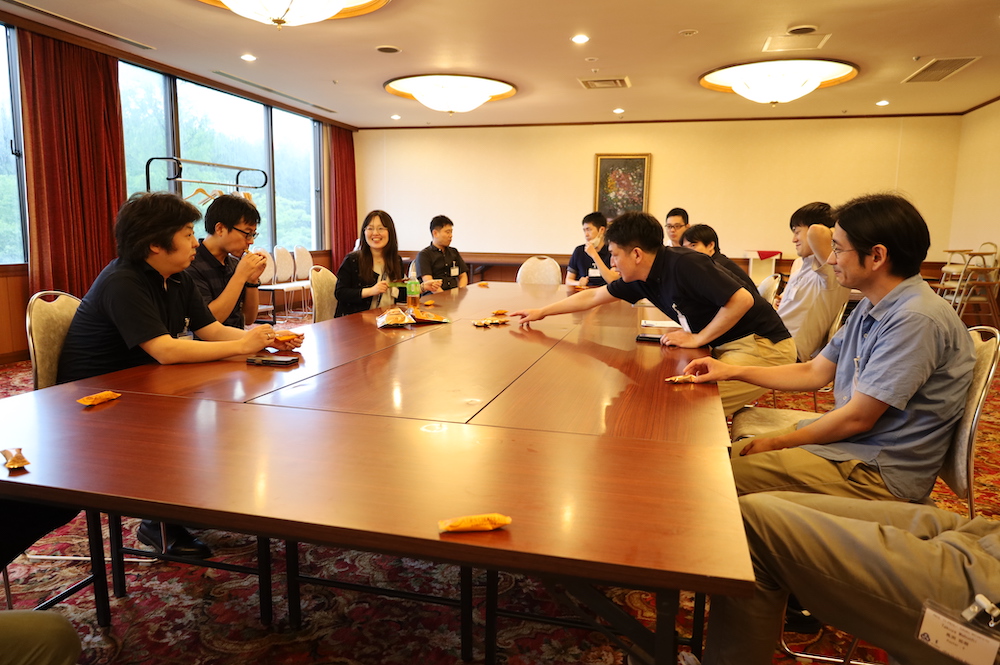
She served as one of the organizers at the FRIS/TI-FRIS Retreat 2023, leading the exchange among young researchers.
———What would you like to challenge in the future?
TI-FRIS emphasizes the social implementation of research. Until now, social implementation has mainly been about inventions and technological developments adopted by large corporations, but I want to engage in activities that solve the issues of small communities together with people who are struggling with various difficulties in life. It may seem small at first glance, but I believe it is a big step in questioning the way of society that is often referred to as "only now, only money, only me." I want to challenge initiatives for social implementation that take that step.
(At the TI-FRIS/FRIS Symposium in February 2023)
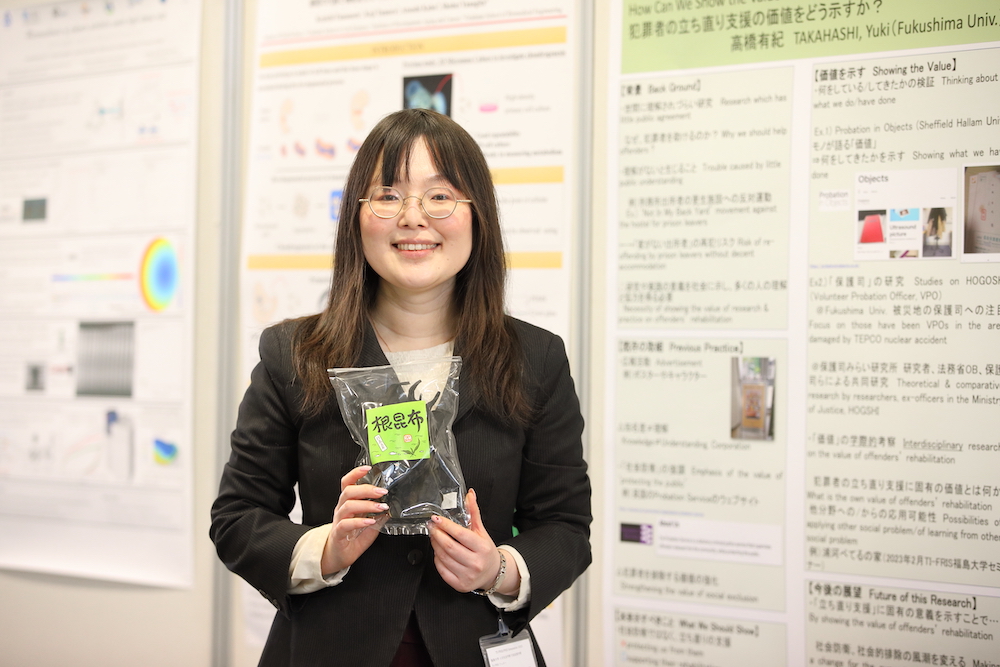
Assoc. Prof. Yuki Takahashi (Faculty of Administration and Social Sciences, Fukushima University)

